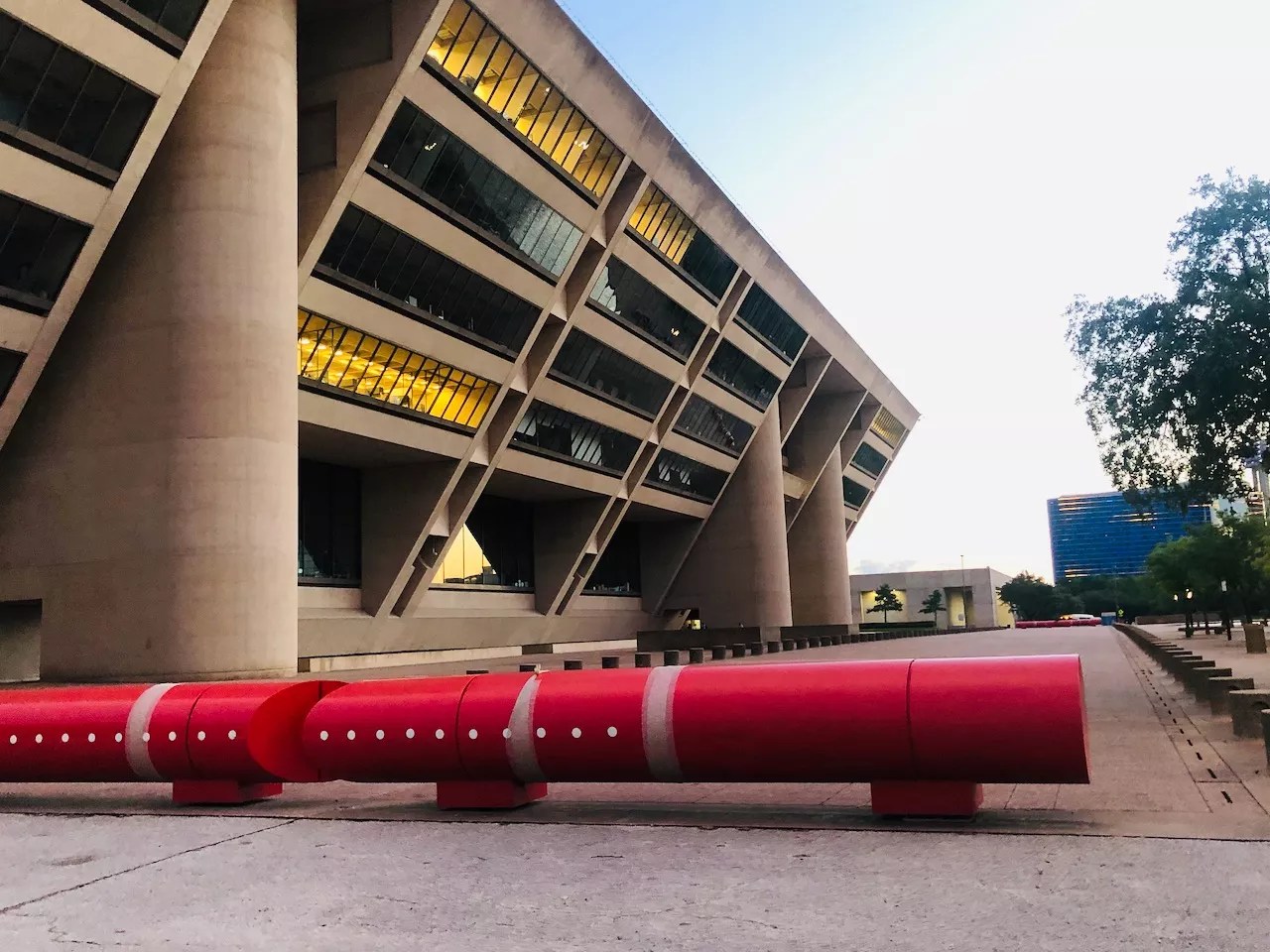
Lauren Drewes Daniels

Audio By Carbonatix
Some people call gas-powered leaf blowers “the devil’s hair dryer.” They say the lawn equipment causes environmental and noise pollution and that cities, including Dallas, should ban them because of it.
Half an hour of use creates more emissions than driving a Ford F-150 some 3,800 miles. It spews carbon monoxide, smog-forming nitrous oxides and carcinogenic hydrocarbons into the air with each passing minute. Some produce more than 100 decibels of low-frequency sound, which can cause tinnitus and hearing loss with long exposure.
Dallas has considered such a move before, but the leaf blower motors still rumble all over the city. However, City Council member Paula Blackmon said they will take up the issue again next year. The local environmental advocacy group Downwinders at Risk will host a virtual event Thursday to discuss how to move Dallas toward banning the leaf blowers.
In 2019, then City Council member Philip Kingston was looking for a moratorium on gas-powered leaf blowers. At the time, the Quality of Life, Arts & Culture Committee discussed changing the city’s noise ordinance to crack down on the lawn tools. There was already a restriction that limited the use of law equipment to between 7 a.m. and 10 p.m.
But Kingston had his sights specifically set on the leaf blowers. “There’s a host of environmental and public health reasons not to have these around,” he said at the time.
Because noise complaints often lead to police calls, the council decided the issue should be taken up in the Public Safety Committee instead. The gas-powered blowers have kept running in Dallas ever since.
In a list of recommendations to the city last year, the environmental group Public Citizen encouraged Dallas officials to lobby the state to modify the tax-free holiday for energy efficient appliances that are only electric and to create a rebate program for all electric appliances including lawn equipment like leaf blowers.
Data from the Department of Transportation shows that in 2018, Americans used nearly 3 billion gallons of gasoline on lawn and gardening equipment.
Over the last five years, electric-powered landscaping equipment shipments in the U.S. increased by over 75%, according to The Associated Press.
While some would like the gas-powered blowers removed from the face of the planet completely, the technology to replace them isn’t quite there yet for larger scale operations.
“The transition to electric is inevitable, and most landscapers are trying out this equipment all the time,” Andrew Bray, vice president of government relations for the National Association of Professional Landscapers, told the AP. “But while the technology is already there for homeowners – and I myself use electric equipment at home – the technology isn’t there yet for most of the commercial sector.”
Cordless leaf blowers, for example, don’t have the battery power needed for commercial use, Bray said.
Some places have already done away with the gas-powered leaf blowers. Most recently, California passed a law that aims to phase out sales of new gas-powered law equipment, including leaf blowers, by 2024, according to The Washington Post. The law will require new small off-road engines, used mostly for landscaping, to be zero-emission in the next two-three years.
Over 100 U.S. cities have put some restriction on gas-powered leaf blowers, with a ban taking effect in Washington, D.C., next year. Quiet Clean D.C., a nonprofit that supports the ban, says on its website, “These health risks do not only apply to the public, but also for the employees of lawn care companies.”